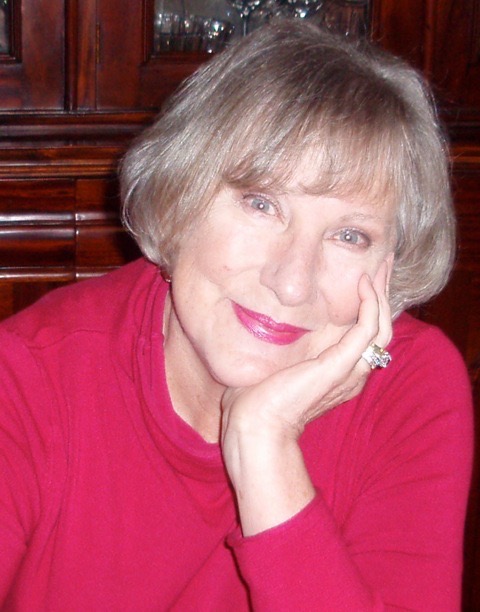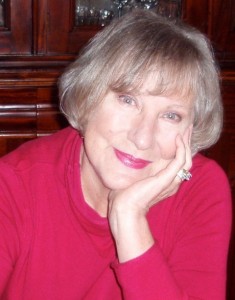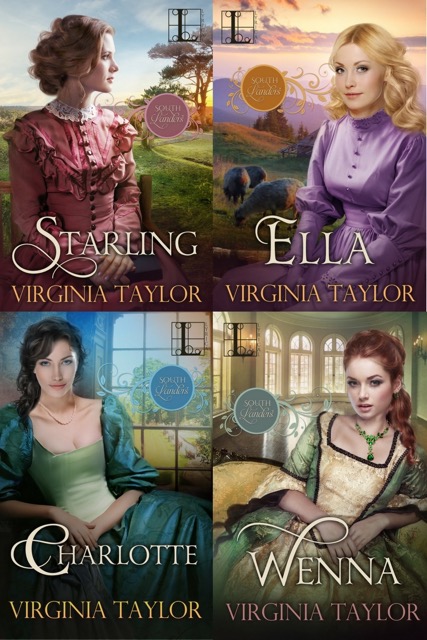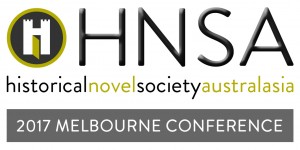Welcome to Sunday Spotlight. Today we welcome Virginia Taylor, author of the Colonial Australia series, Southlanders.
When did you start writing and what was the catalyst?
I started writing twenty-six years ago. That was about a year after I discovered romance novels. After reading the first, I saw how I could get the fix I needed the guarantee of a happy ending. Before that, I found too many stories dodgy to say the least. I would invest my time growing along with characters, feeling hopeful for the future when they would suddenly throw themselves off a cliff, figuratively speaking. I didn’t want to read the ends of stories before I started books, so every story had me risking disappointment. I needed to read about people who strived and grew and because of that, had a chance of a happy ever after. Or at least for the duration of that story.
How many novels have you written and published?
I have written 14 or 15 and had ten published though the last three of those are waiting in a queue.
How long on average does it take you to write a book?
How long is a piece of string? Initially, when I was a newbie writer I could dash off 120,000 rambling, unstructured words in a couple of months. These days, with contracts to fulfil, I can write and polish a contemporary romance of 60,000 words in about four months. It would take me at least 8 months to write a new historical, (80-90,000 words) but those I have sold so far were written years ago and only needed a few cuts and quite a bit of polishing. The three contemporaries in my new series are the first new books I have written in fifteen years. Every historical I write from now on will also be entirely new. This is why I know how long I need to write a certain amount of good words, good being the keyword.
How has being Australian AND a woman impacted on your writing and/or writing career?
Being a woman hasn’t set me back in my writing because I write for women. Being an Australian makes the publishing journey a little harder. I had always wanted to be published in the US because I read romances published in the US. For this reason, I joined the US RWA. In those days, the RWA Australian group mainly catered for what is now called Harlequin. I tried with Harlequin a couple of times, and each time an editor wanted me to make changes in my stories. I wasn’t willing to do the changes they requested and so I continued submitting to US publishers. I had an US agent back then but I always wrote Australian stories because I saw a spot needing to be filled overseas.
I won or placed in 15 romance writer’s competitions in 2013. This put my various stories on US editors desks. One of these editors thought I should change Starling (the first Australian historical I eventually sold) to a Regency romance. I did that, because this was after almost 20 years of trying and failing to be published. After intensive historical research and the rewrite, I sent it off to her and never had an answer. Back I went to my Aussie settings. Within a year I had landed a contract from Random House for two contemporaries and a few months after that a contract for my historical novels from Kensington Books, USA. Persistence eventually pays off.
What authors and types of books do you love the most?
I love long, detailed, beautifully written stories. My favourite author is Dorothy Dunnett and I own her two series of historical adventures. Like the rest of us Dunnetters, I reread these stories constantly. I have other favourite authors and some are historical romance writers and some are simply writers of historical fiction, like Larry McMurtie Lonesome Dove and Arianna Franklin’s Mistress of the Art of Death series.
What is your favourite childhood book? Did reading as a child have any bearing on your decision to become a writer?
I had a horse of my own, so I was dead keen on horse stories like Flicka, Black Beauty, etc. Even back then I loved anything of an historical nature, stories set in ancient Rome, or Egypt, or England. I read anything I could get my hands on including Steinbeck, Maugham, Sayers, Wodehouse, Durrell, Seton or anything else my mother read. I was one of those kids who was constantly told to get my head out of a book. I never had the slightest urge to write stories myself, until the day I started writing my first historical romance but then I had to learn to type and use a computer.
What inspired your most recent book?
Wenna was inspired by the colour of her hair. Seriously. My first heroine was blonde, Charlotte had dark hair so naturally Wenna had to have red hair. Yes, I know that’s crazy, but I had covers in my head in those days and I didn’t want them all to look the same. Demelza from Poldark, and the story of my own family inspired the rest. Devon, well, he’s every good-natured smart man I have ever met.
Wenna was the third historical I wrote. The first was Nell, which I am currently revising- (in other words rewriting every single word, keeping only the names of the characters), the second was Charlotte, and she inspired Wenna. Starling came after Xanthe, which I have to rewrite, and Ella was the last. It has been quite difficult having these stories published out-of-order but I have kept away from spoilers and only made hints about characters who will feature later.
How much research do you do? As an author of Historical Fiction, how do you balance the demands of getting the facts right and telling a good story?
I’m methodical. All my stories are character based. I decide what sort of woman my heroine is and then I find the man who would be perfect to bounce off her. For example, Wenna is slightly rigid in her ideas. Therefore, her hero needed to be more relaxed. Each complements the other in all my books. I am a natural-born matchmaker.
I tell a good story and I pepper it with facts. I own a few good books on the history of South Australia. This means I can look up the names of ships and the years they docked, the names of the governors, the plants that grew in various areas, etc. But the story comes first. The history is a background character every time. During the period that Wenna lived in Adelaide, gas lines were being laid, a detail that wove through the story. I researched that with books from the Mortlock library and I had a very interesting telephone conversation with a few flirty firemen to find out about the equipment that would have been used in those days to fight fires.
Do you read your book reviews? Do you appreciate reader feedback and take it on board, even if it is negative? How do you deal with negative feedback after spending so much time writing your book?
I read most of my reviews. The negative ones rarely bother me unless the reviewer has the historical facts wrong. If she has read something into the story that isn’t there, I try to work out why. I usually come to the conclusion that I must have confused her therefore I try hard to be clearer the next time. Some reviewers have a certain story in their heads and when mine doesn’t conform they pan me. The way they do tells me who or what they usually read. I mainly have lovely reviews from people who understand where I was going and are happy to see something different.
How much planning do you do? Do you plan / plot the entire story from beginning to end, or let it evolve naturally as the writing progresses? In terms of characters, are they already a firm picture in your mind before you start writing or do they develop a personality of their own as the story progresses?
I’m a pantser. I write the first chapter with the idea of my characters and how they meet. The rest grows from there. I have a feel for the timing, that is, I know where I should put the first hurdle and the next and the black moment. My mind is about 10 thousand words ahead of the events, and I slowly move to the end. Sometimes the dialogue drives the characters, and sometimes I drive the dialogue. I’m like every other writer, a small part instinctual and a small part crafty.
Have you ever had to deal with a situation where someone feels they recognise traits of themselves in one of your characters?
No one should. I don’t base any of my characters on anything but my knowledge of people and how they react. I’m a people watcher, very visual, and rather empathetic.
Can you tell us something about yourself that not many people would know?
I’m the least mysterious person in the world, sort of ‘what you see is what you get’ person. I tend not to have an editor for my mouth. This means I have few secrets.
If you could go back in time for a year, which historical era would you choose to live in?
Seriously, none. We are living in the best time now. I wouldn’t like to live in the times before medicine could cure or treat most diseases, or when childbirth could kill a woman.
If you could sit down for an afternoon with an iconic person from history, who would you choose to spend that time with?
I have spent half an hour trying to think of someone I see as an icon and I can’t come up with any names. During my lifetime, I have met some amazing people, some famous, some important, but none more important to me than those I knew. If I had any sort of chance of spending an afternoon with someone, I would choose people I loved who have died, like my brilliant but impatient grandmother, my beautiful but wayward mother, my esteemed painting partner who had a world of wisdom to share, and my wise, heroic, and very much mourned iconic husband.
When did you discover the Australian Women Writers Challenge? Do you think the challenge has had any impact on the awareness and discoverability of Australian Women writers? Have you personally benefited in terms of exposure of your work to new readers?
I saw Australian Women Writer’s links a couple of years ago, but when I skimmed through the books on view, I could see I would never feature as an Australian woman writer, despite being exclusively that since I began writing. The names I knew on the lists were those I would have expected to find there, those who had polished their promotional skills. I didn’t even know where to find a duster. I am utterly amazed that I have been accepted as an Australian Women’s Writer, while knowing that I am an Australian woman writer.
At this stage, I haven’t benefitted in terms of exposure, but I have been given the opportunity at least to be seen by Australian readers. Being published in the US doesn’t give me that chance and in my home state, South Australia, romance writers don’t have any chance to be publicised unless Rupert Murdock is monetarily involved.
About the Southlanders Series:
Starling
An aspiring dressmaker, orphaned Starling Smith is accustomed to fighting for her own survival. But when she’s offered a years wages to temporarily pose as a wealthy man’s bride, she suspects ulterior motives. She can’t lose the chance to open her own shop, but she won’t be any man’s lover, not even handsome, infuriating Alisdair Seymour’s.
To prevent his visiting sister from parading potential brides in front of him, Alisdair has decided to present a fake wife. He lost his heart once, and had it broken he doesn’t intend to do it again. But stubborn, spirited Starling is more alluring than he bargained for, and Alisdair will risk everything he has to prove his love is true.
Set against the sweeping backdrop of 1866 South Australia, Starling is a novel of cherished dreams and powerful desires, and the young woman bold enough to claim them both.
Ella
Ella Beaufort knew better than to rely on a sexy stranger. But with two sisters to support on the modest earnings of the family sheep station, she accepts shearer Cal Lynton’s help along with his intoxicating kiss. The most Ella can hope for is an affair. Something a woman in her situation wouldn’t dare, or would she?
Heir to his family fortune, Charlton Alfred Landon Lynton abandoned his privileged life to prove his independence. He doesn’t have time for a woman, but once he woos the lovely Ella into his bed, he is ready to make her his wife until she shocks him with her refusal, claiming she can only marry a rich man! Angry and brokenhearted, the heir in disguise leaves the beautiful gold-digger behind.
But amid the breathtaking landscape of South Australian, Ella and Cal are destined to meet again. Will their heated reunion lead to cruel confrontation or the kind of passion that lasts a lifetime?
Charlotte
After losing his first love in childbirth, Nicholas Alden knows with a great certainty that he must never be a father. But to be a husband is a very different matter–mandated by South Australian society, necessary for his family name. So, when he meets beautiful social climber Charlotte, he believes he has found a wife he can keep at arm’s length. He is terribly wrong.
Born on the wrong side of the sheets, Charlotte hopes Nick can prop up her reputation long enough to secure a suitable match for her beloved cousin. She assumes that is all she can ask of her new husband–until they succumb to a night of uninhibited passion. Her heart is won in his embrace, but he doesn’t know the truth of her scandalous parentage. If he did, all would be lost.
Still, somehow, Charlotte dares to hope that her match of convenience could become something more. It is a reckless gamble, but the prize–a marriage of blazing lifelong desire–is one worth any risk.
Wenna
Wenna Chenoweth’s future is secure, until dashing Devon Courtney’s illicit flirtation gets her dismissed from her job as a lady’s maid. With nowhere to turn, Wenna is forced to accept Devon’s bold proposal: To be his bride. To enter society on the handsome aristocrat’s arm. To give him the heir he requires. It’s a foolproof plan. Except Wenna finds herself falling hard for a man who can never love her for who she is.
Wenna is passionate, mysterious, and ill-suited to the idle life of a society wife. She’s also exactly the kind of woman who could endanger Devon’s hopes to build his own future far from his family’s influence. For the spirited beauty has embarked on an unthinkable plan of her own – one that could lead him to surrender his resolve, and sacrifice everything he believes he holds dear.
Yet amid the wondrous landscape of colonial South Australia, anything is possible. Perhaps even love between two people the boundaries of society would keep apart.
You can learn more about Virginia and her books by visiting her website.
Historical fiction fans might be interested to attend the 2017 Melbourne Historical Novel Society Australasia conference on 8-10 September. The programme features over 60 speakers. You can read interviews with some of the participating authors at the HNSA blog.
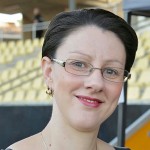 Writer, avid reader, keen reviewer, book collector, drinker of all tea blends originating from Earl Grey, and modern history enthusiast. I enjoy reading many genres but have a particular interest in historical fiction. You can find me and all of my book related news and reviews at my blog, Theresa Smith Writes, Facebook,
Writer, avid reader, keen reviewer, book collector, drinker of all tea blends originating from Earl Grey, and modern history enthusiast. I enjoy reading many genres but have a particular interest in historical fiction. You can find me and all of my book related news and reviews at my blog, Theresa Smith Writes, Facebook,
Goodreads, Twitter @TessSmithWrites.

